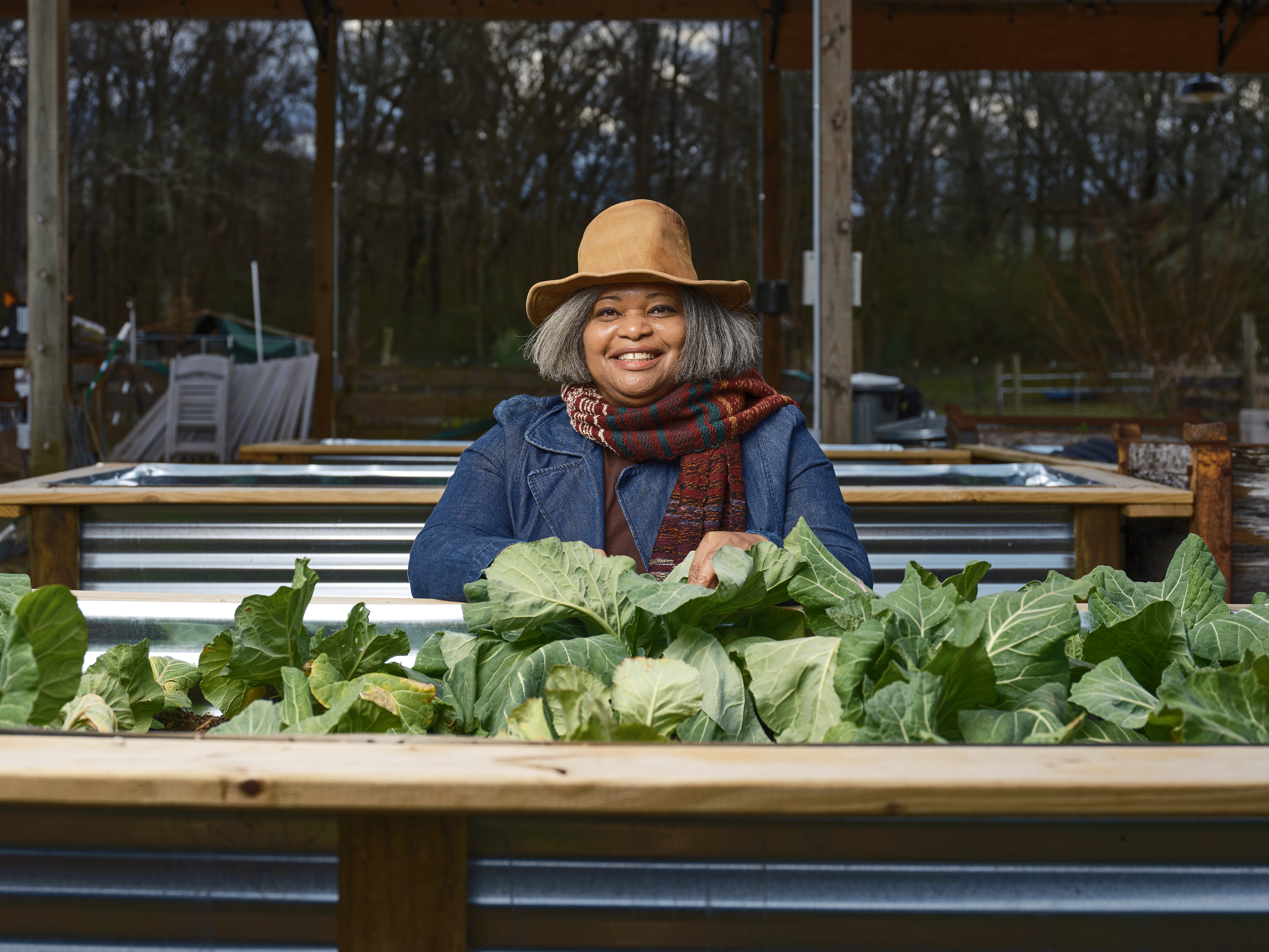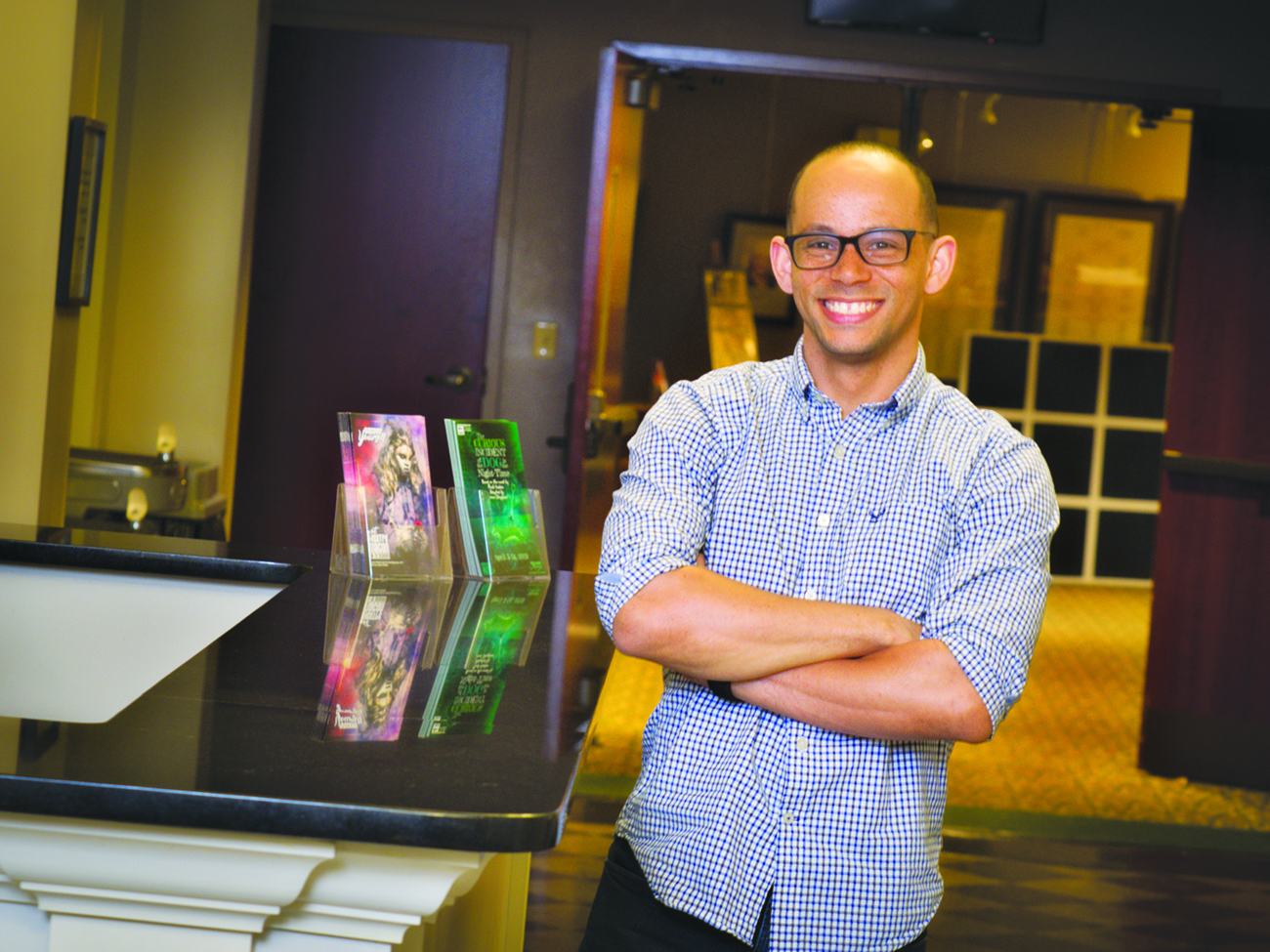
Act Two, Scene Two
Beginning his second season at Theatre Macon, Artistic Director Richard Frazier brings exciting changes to the company
By Michael W. Pannell
Photography by Jessica Whitley
Theatre Macon’s new artistic director Richard Frazier might have been nervous about changes he wanted to bring to the theatrical company started by Jim Crisp and a handful of others 33 years ago—but he hasn’t let that stop him.
Frazier made it clear by the plays he selected for his first season following Crisp’s 2018 retirement that Theatre Macon was moving forward. But his second season makes it even more clear.
“Choosing my first-season plays, I considered what people would want to see but also wanted to put my stamp on Theater Macon,” he said. “I knew there would be comparisons between Jim and I, but I didn’t want them to be easy ones, like apples to apples. I wanted to show a difference, like between apples and oranges.”
Among the plays, Frazier chose a contemporary adaptation of “Sense and Sensibility,” which used traditional costuming and language but a modern sense of story and humor closer to current issues. There was also “The Legend of Sleepy Hollow,” which incorporated new theatrical elements in the familiar tale, like large-sized puppetry never previously employed on Theatre Macon’s stage.
“The Curious Incident of the Dog in the Night-Time” took things further with a stark stage setting and mammoth video screen to reveal the mind of a young man with autism. Frazier said bits of the story and language were “disturbing” but provided audiences insight into life with autism.
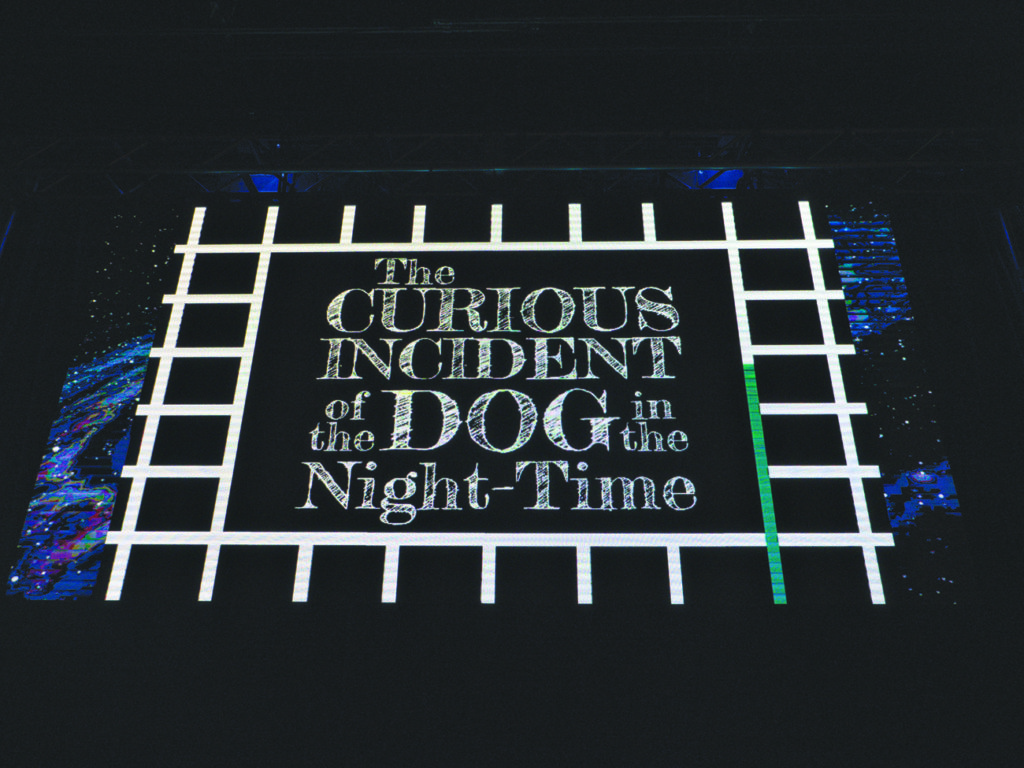
Such material, Frazier said, challenges audiences and communities, which he said is an aspect of what theater and art is responsible to do.
“‘Curious Incident’ is a prime example of something not having a huge name but having a big impact in challenging how we view something – in this case autism – and considering how we think, how others think and why,” he said. “This kind of challenge isn’t a negative, but a positive in making us think things through and understand things and others better.”
Stage 2 sets a new scene
His second season changes are reflected more in how Theatre Macon operates.
“We’ve changed the number of plays in our season and done away with the name Mainstage productions,” Frazier said. “Our Youth Actors’ Company has become the Youth Artists’ Company, which better shows that young people aren’t just invited to act, but to learn all aspects of a production. And, of course, we’ve added the Stage 2 Series.”
Practically speaking, where seasons previously were from September to May with six plays and a summer musical, the new subscription season — the company’s 34th — runs August to May and includes two plays, two musicals and two Youth Artists’ Company , or YAC, plays.
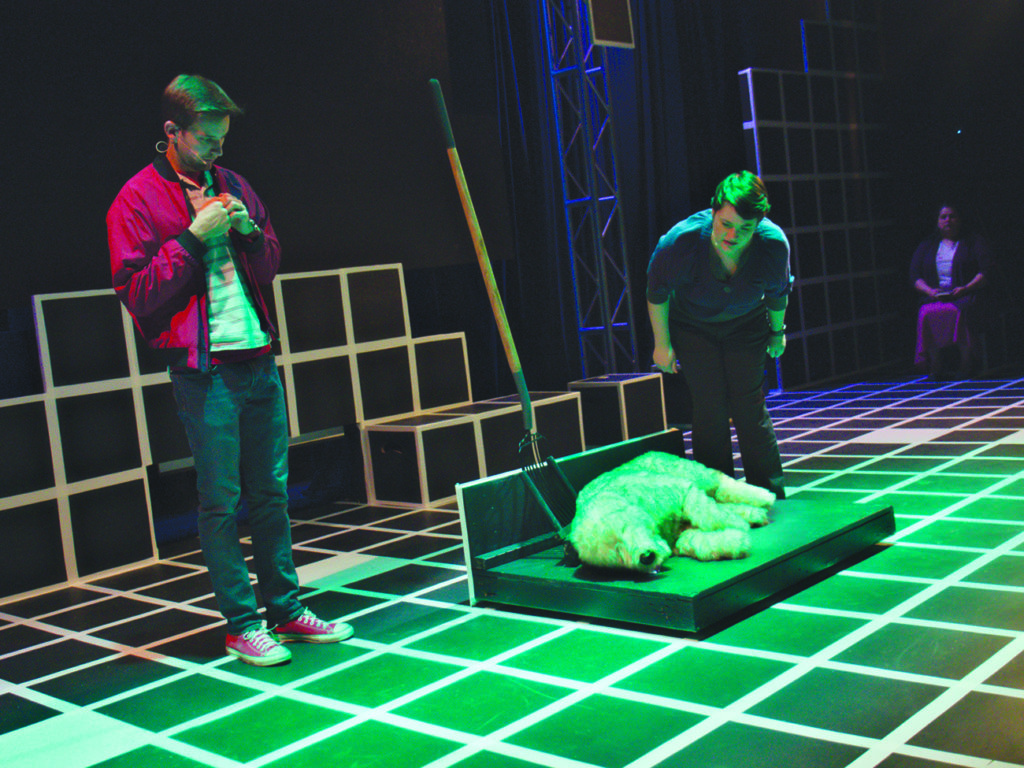
Frazier said the Stage 2 Series allows artists to work together on smaller works of theater, ones they’re particularly interested in.
“It can be, but doesn’t even have to be, a full-fledged play,” he said. “It can be a reading, a new work, a locally written piece. It might be a poetry slam or concert, things we wouldn’t do in our regular subscription season, but interesting things that need to be done to allow people to express themselves and offer audiences a greater range of performances. I act as producer and make sure quality is there, but I don’t direct. Direction, stage production and performances are done by those submitting the work. We’ve started Stage 2, but who knows how it will evolve. If our inaugural June production of the three cast-member play ‘Sylvia’ directed by Erin Ferrell is the sort of thing Macon has to look forward to, then I’d say we made the right decision creating Stage 2. Production quality was high and performers were perfect.”
“The Dining Room,” “The Last Five Years” and “Love, Loss, and What I Wore” are the other works set for Stage 2’s June 2019 to May 2020 season.
In it all, Frazier acknowledged that sweeping change – even when for the best – isn’t easy.
“No, I won’t say it’s easy,” he said. “Change can be very difficult for any of us – whether in our personal lives or out in the things we do. I know that not everyone is happy with every point of what we’re doing, but I’d say many more are. It takes time.”

Frazier said he knows some may roll their eyes when he walks in with new ideas, but is the theater’s founder Crisp having sleepless nights about Theatre Macon’s new direction?
“No!” Crisp answered emphatically. “This is exactly why I hand-picked Richard to replace me. I haven’t told people this, but I retired a couple of years earlier than I planned because I was afraid we might lose him. I was afraid he would go elsewhere and we’d lose his leadership into the future. Am I bothered by the changes and directions? I’d be bothered if I wasn’t seeing them. What he’s doing now reflects exactly what we set out to do in the ‘80s. I’m proud of what I’ve done as artistic director, but we hired him to do what needs doing in 2019 and beyond.”
Education on and off stage
Frazier said he never wanted to be a star on stage. In fact, from age 5, he wanted to be a teacher.
“I was the kid staying after school to help the teacher,” he said. “At home, we played classroom; that’s what I wanted.”
Frazier said as a youngster the possibility of school trips got him into chorus, which led to doing plays. That led to his deciding to teach theater.
Graduating from Columbus State University, Frazier was hired as part of the award-winning drama program at Northside High School in Warner Robins. He taught for seven years and became a board member for state and national youth drama associations.
Brian Barnett leads the Northside program and it was Barnett who suggested Frazier get involved with Theatre Macon. His first involvement was as choreographer for 2011’s “Rocky Horror Show,” and roles on and off their stage followed.
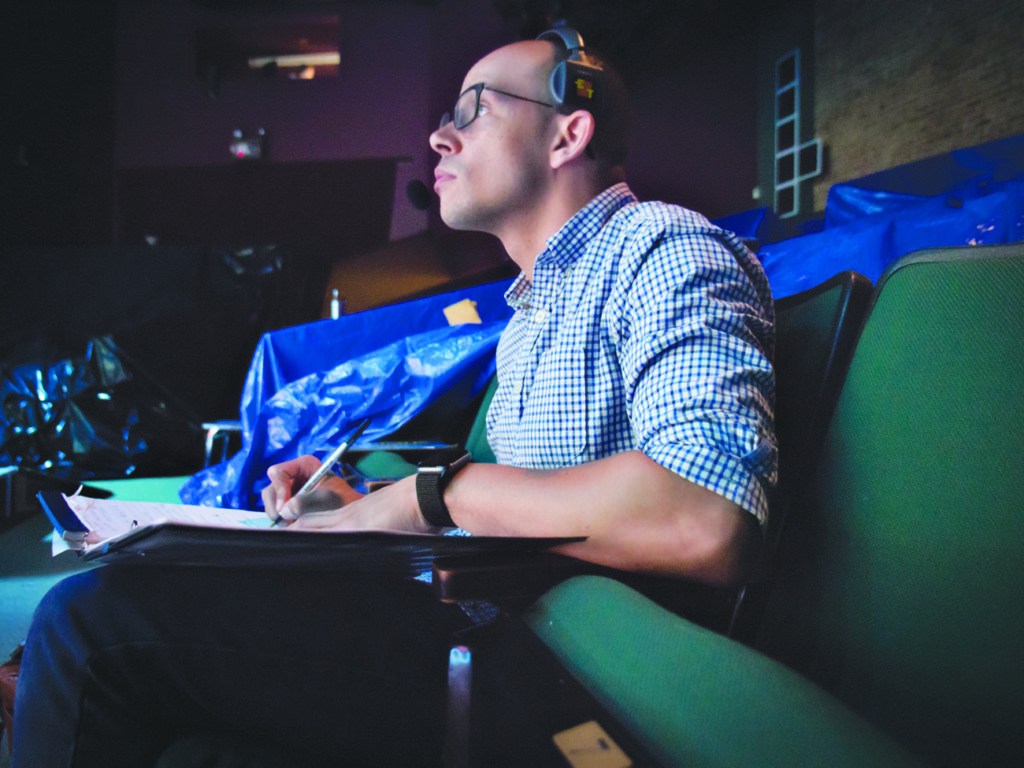
As artistic director, Frazier still sees himself as an educator.
“To me, Theatre Macon is where people of diverse backgrounds can come together and see and tell their story onstage,” he said. “That’s what happens. People see, in the lives and stories of others, things they relate to and learn from. … It’s mainly about people in our community who want to be entertained, maybe want to have a date night and who don’t mind gaining a greater understanding about themselves and others through it. As much as anything, we want to be teaching empathy and compassion – whether it’s through involvement in plays or as a patron or an audience member.”
In this light, Frazier said his changes are simply to secure the theater’s future and fulfill its mission, just as Crisp did effectively for more than 30 years. That mission officially says Theater Macon is to “… explore the human condition and celebrate the endurance and durability of the human spirit by producing the best of classic, modern and original dramatic works for teen and adult audiences.”
“My philosophy is we’re storytellers,” Frazier said. “Second, we have a duty to move and inform audiences. To me, that’s still teaching. Most would say I work very hard and expect a lot from others, but I hope I’m also known for respecting others while pushing them to be more than they dreamed they could be, just as many have done for me.”
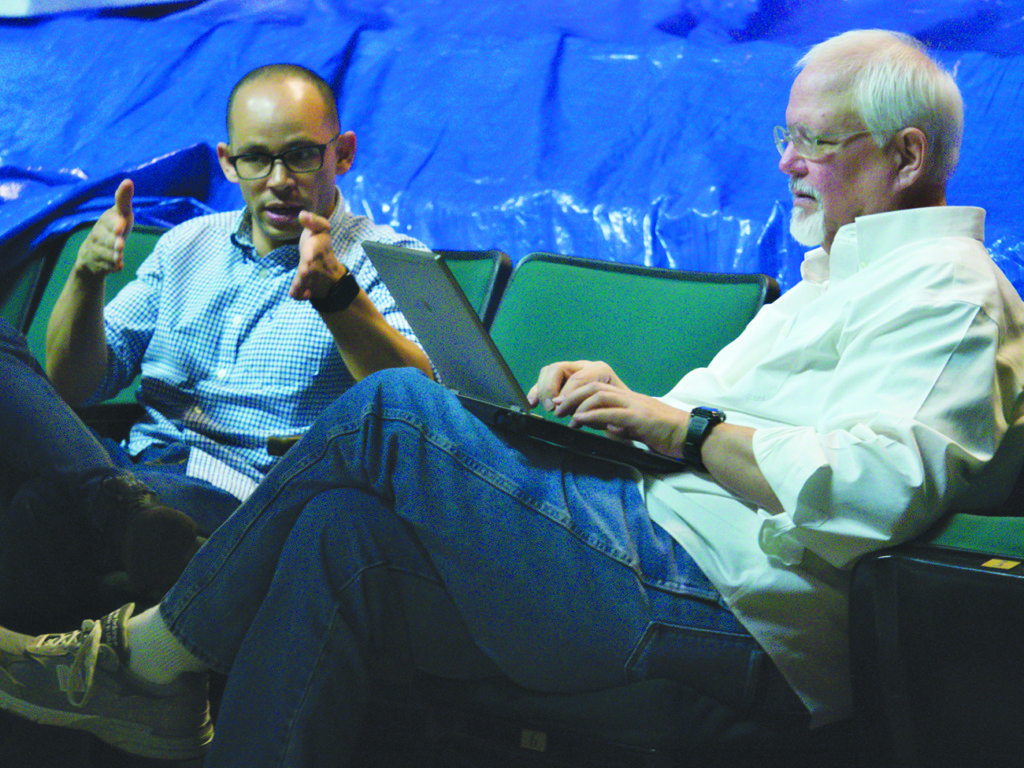
As Theatre Macon moves forward, Frazier said he’s proud of the work those involved in his first season have done and of those who made Theatre Macon what it is. He said he’s proud of the community role the theater and Crisp played in bringing entertaining and innovative theater to Middle Georgia, as well as being one of the first entities to relocate downtown and pioneer a renaissance there.
He said Theatre Macon’s future challenges are not so different than that of any business or enterprise, and he’s optimistic the theater will thrive.
“I believe the biggest way the community can support us is to come and see a show; be entertained. Be challenged and be delighted all in one evening. We have great support in the business community that helps us offset some costs and I hope that continues, but really – just come see a show. Get in on the magic.”






